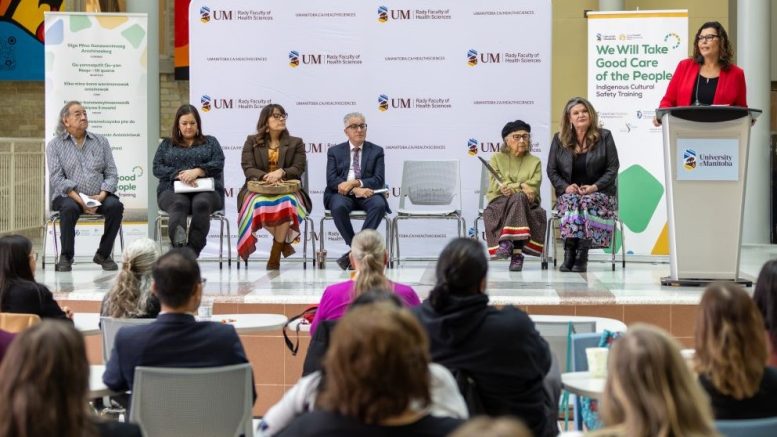A training program aimed at ensuring culturally safe care for Indigenous patients by Manitoba health-care workers has been created by Ongomiizwin, the Indigenous Institute of Health and Healing within the U of M’s Rady faculty of health sciences, in collaboration with health system organizations across Manitoba.
The initiative, titled Giga Mino Ganawenimaag Anishinaabeg, which translates to “we will take good care of the people” in Anishinaabemowin was officially launched on Nov. 26 during an event that featured a traditional pipe ceremony and feast. It aims to equip up to 3,000 health-care professionals annually with the knowledge and tools to provide culturally safe care, as reported by UM Today.
The training includes 10 online modules, totaling approximately 10.5 hours, followed by a two- to three-hour in-person workshop to support the learning. The topics cover the impact of colonization on Indigenous health, strategies to address systemic racism and the health-related calls to action outlined by the Truth and Reconciliation Commission.
The training, funded by a grant of nearly $1 million awarded to Ongomiizwin through Health Canada’s Addressing Racism and Discrimination in Canada’s Health Systems program, will be done in collaboration between the U of M and Manitoba’s health regions.
Participants ranging from health-care workers to decision-makers will access the training through various platforms, including UM Learn and the shared health learning management system. Private clinicians and external organizations can enrol via the Max Rady college of medicine’s continuing professional development system.
The program’s launch follows growing national and provincial commitments to addressing Indigenous-specific racism in health care. These include pledges and apologies from the Canadian Medical Association and the College of Physicians and Surgeons of Manitoba for their role in perpetuating harm against Indigenous peoples.
While cultural safety training for health workers has been offered in Manitoba since 2015, this marks the first program of its kind developed locally, tailored specifically to the province’s unique context.



